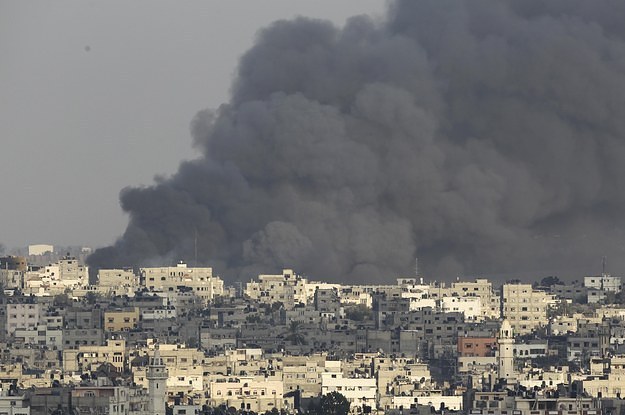World
Israel Announces Intent to Launch Ground Incursion Into City Along Egyptian Border
In a significant escalation of the ongoing conflict, Israel has announced plans to deploy ground troops. The objective is to combat Hamas militants in Rafah, a densely populated southern city in the Gaza Strip bordering Egypt. The decision comes as more than one million civilians seek refuge from relentless violence engulfing the region. Concerns rise over their safety.
Justification Amidst Humanitarian Crisis
According to Barron’s, Israeli Defense Minister Yoav Gallant affirmed Israel’s military intent during a press conference on Monday. He declared, “We are advancing with this operation and will extend our presence to areas within the central and southern regions. We are particularly targeting the remaining stronghold under Hamas control—Rafah.”
International Diplomatic Tensions
The move has sparked apprehension both domestically and internationally, particularly in Israel. Fears are mounting over the humanitarian fallout of a ground offensive in a city already grappling with severe shortages of essential resources. Rafah, now inundated with displaced individuals, faces a dire situation exacerbated by limited access to water, food, and medical supplies.
Concerns from Neighboring Egypt
Israel authorities justify the incursion as a necessary measure to dismantle Hamas’s infrastructure for smuggling weapons, particularly through Rafah—a vital conduit for illicit arms transfers. They argue that failure to neutralize these channels would perpetuate the cycle of violence. Additionally, it would pose a persistent security threat to the region.
International Diplomatic Response
However, the prospect of a ground operation in Rafah has raised diplomatic tensions, particularly with neighboring Egypt, which has played a pivotal role in mediating between the conflicting parties. Egyptian officials have voiced concerns over the potential spillover effects of the conflict. They warn that any influx of Palestinian refugees into the Sinai Peninsula could jeopardize longstanding peace agreements between the two nations.
Efforts Towards Ceasefire
According to a Wall Street Journal report, the United States, meanwhile, is intensifying efforts to broker a ceasefire agreement. Secretary of State Antony Blinken is undertaking his fifth visit to the region since October. Blinken’s diplomatic mission underscores the urgency of addressing the escalating humanitarian crisis. It also highlights the importance of reaching a sustainable resolution to the protracted conflict.
Domestic and International Reactions
Israeli PM Benjamin Netanyahu vows “total victory” against Hamas amid international pressure and domestic politics, emphasizing national security interests. He emphasizes the need to safeguard national security interests. However, critics argue that a military solution alone is unlikely to yield lasting peace. They underscore the importance of addressing the root causes of the conflict and advancing diplomatic initiatives aimed at fostering reconciliation and stability in the region.
Uncertain Future
As tensions continue to escalate and the humanitarian situation deteriorates, the fate of Rafah hangs in the balance. The specter of further bloodshed and displacement casts a shadow over hopes for a peaceful resolution to the crisis.

